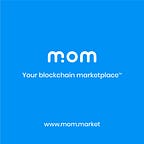Blockchain marketplaces: the decentralized shopping mall, a glimpse into the future
How blockchain technology could disrupt the whole retail industry.
There is no doubt that the future of retail is online. The e-commerce retail market is growing faster and faster, in emerging markets even more than in mature western economies: on its famed “Singles’ Day,” China’s equivalent of Black Friday, Alibaba sold a whopping $25 billion worth of goods. The way people use these services is evolving as well, smartphones rapidly replacing computers to place orders.
It cannot be questioned that the barriers to ordering online are getting lower everyday, and that people are ready to embrace this change. The benefits of ordering online are immense, but there is concern on how far big players are willing to go to sell their products.
Central actors tend to abuse customers with their dominant position
Two recent examples are chilling: in 2015, Amazon removed the Apple TV and the Google Chromecasts from his website, and in 2017, the Google Home and Nest products, which compete with the Alexa speakers. These products are obviously part of a further reaching battle between major internet businesses. But what if Amazon starts replacing all generic products it sells with low cost Amazon Basics products, by progressive price and placement tweaking?
Centralized actors are dangerous because people tend to rely on them without a back-up plan. The open marketplace, where consumers sell to one another, is an alluring options, but preventing fraud is very difficult. These peer-to-peer exchanges thus comes at an extra cost: time. Customers need time to verify the profile of the buyer / seller, to write a review, have little options when filing complaint, and have to expect long delivery times. Trusted third parties, like Amazon’s MarketPlace or Ebay, are almost unavoidable, as the risk of fraud grows exponentially with the openess of the platform (on Craigslist for example).
The obvious alternative to this situation: Blockchain-based Marketplaces
Blockchain technologies are particularly useful in two areas: peer-to-peer value exchange and traceability / accountability. An open Marketplace seems to be the perfect business to experiment with on the blockchain.
Here is a simple workflow of a buy/sell transaction on a blockchain-based open marketplace:
There would be much less hassle regarding the state of second hand items, as their history could be tracked. And customers would have to worry less about fund safety, escrow solutions and decentralized arbitrage adressing these issues. The delivery process itself makes an excellent case for a blockchain application, and all-in-all, one could reliably order products and services on the internet, have them delivered to their door, without going through numerous identification and review processes.
Multiven is working on such a platform, specifically targeted at IT hardware, software and services.
The market for IT hardware, software and services is estimated at $3.5 Trillion, growing between 1% and 9% year-on year depending on the segment:
It is however deeply siloed, centralized, and constrained. Due to lack of knowledge on software and licence transfer, the reconditionned and refurbished market is under-sized. Many companies, in particular TelCos, have billions worth of equipment and software sitting in warehouses that they cannot move easily. A blockchain marketplace would allow to monetize them swiflty and to address deep-routed liquidity issues in this market.
Adding IT devices on the blockchain makes all the more sense since having devices clearly mapped out can prove very useful to systems admnistrators. A ledger holding the history of a network’s architecure, its current state, and all details on its devices would dramatically improve the process of replacing defect parts or expanding a network.
The final and definitive argument speaking for a blockchain based IT marketplace is that services such as maintenance or cyberdefense can be tied to a device seamlessly through smart-contracts. Regardless of the hardware manufacter, the state of the product, the orginal license owner, a decentralized application would allow to handle all IT related processes. Here is an example of a smart contract tying a service to hardware:
This is what Multiven is currently building. We aim to completely reorganize the IT market, giving it a long needed push towards independence and autonomy. People and companies will be able to freely buy and sell IT hardware, software and services through smart-contracts, using the MultiCoin, Multiven’s ERC20 compatible token.
You will more find information on our project at www.multiven.io
For updates on our upcoming ICO, you can follow us on social media:
Thanks for the read and see you soon!
The Multiven Team
